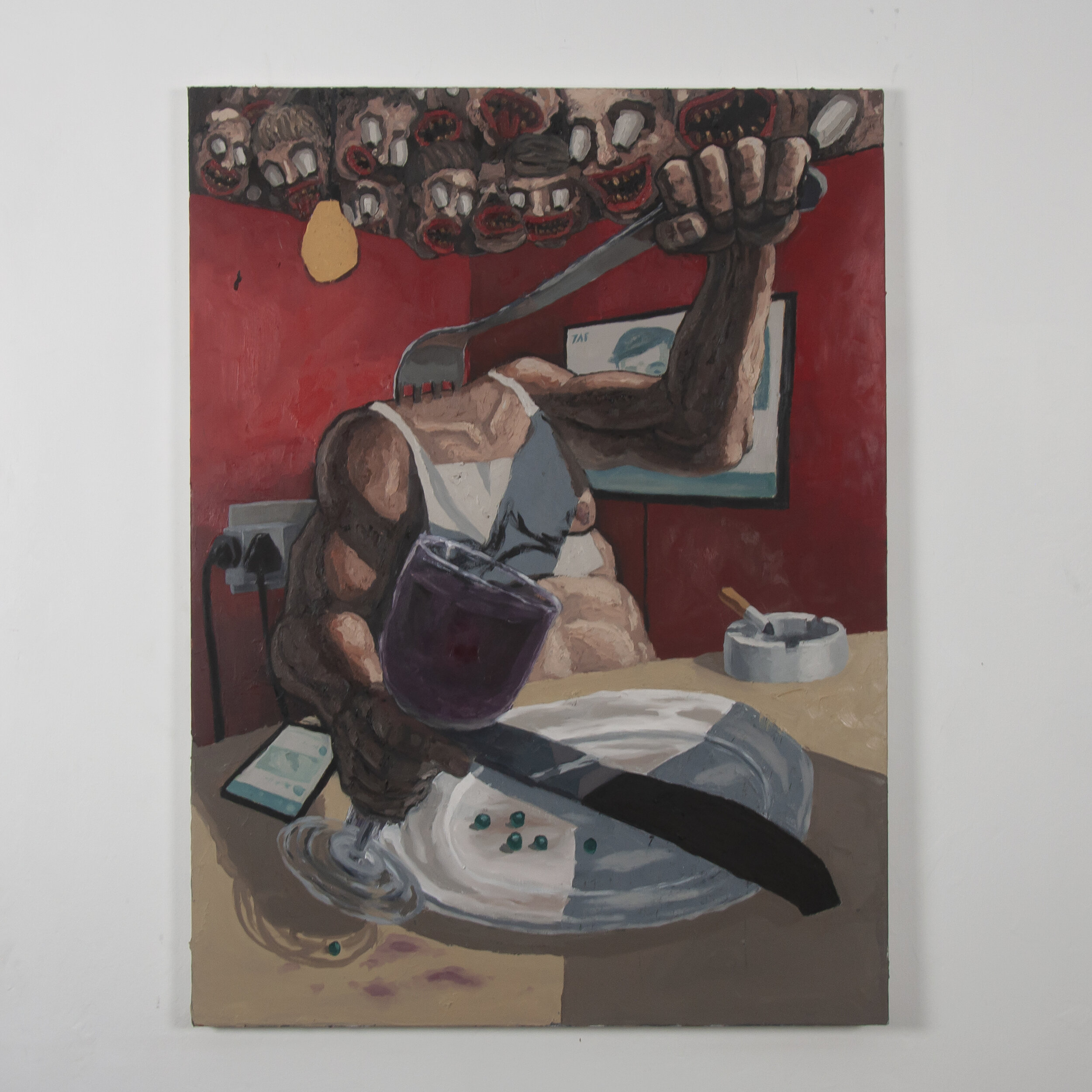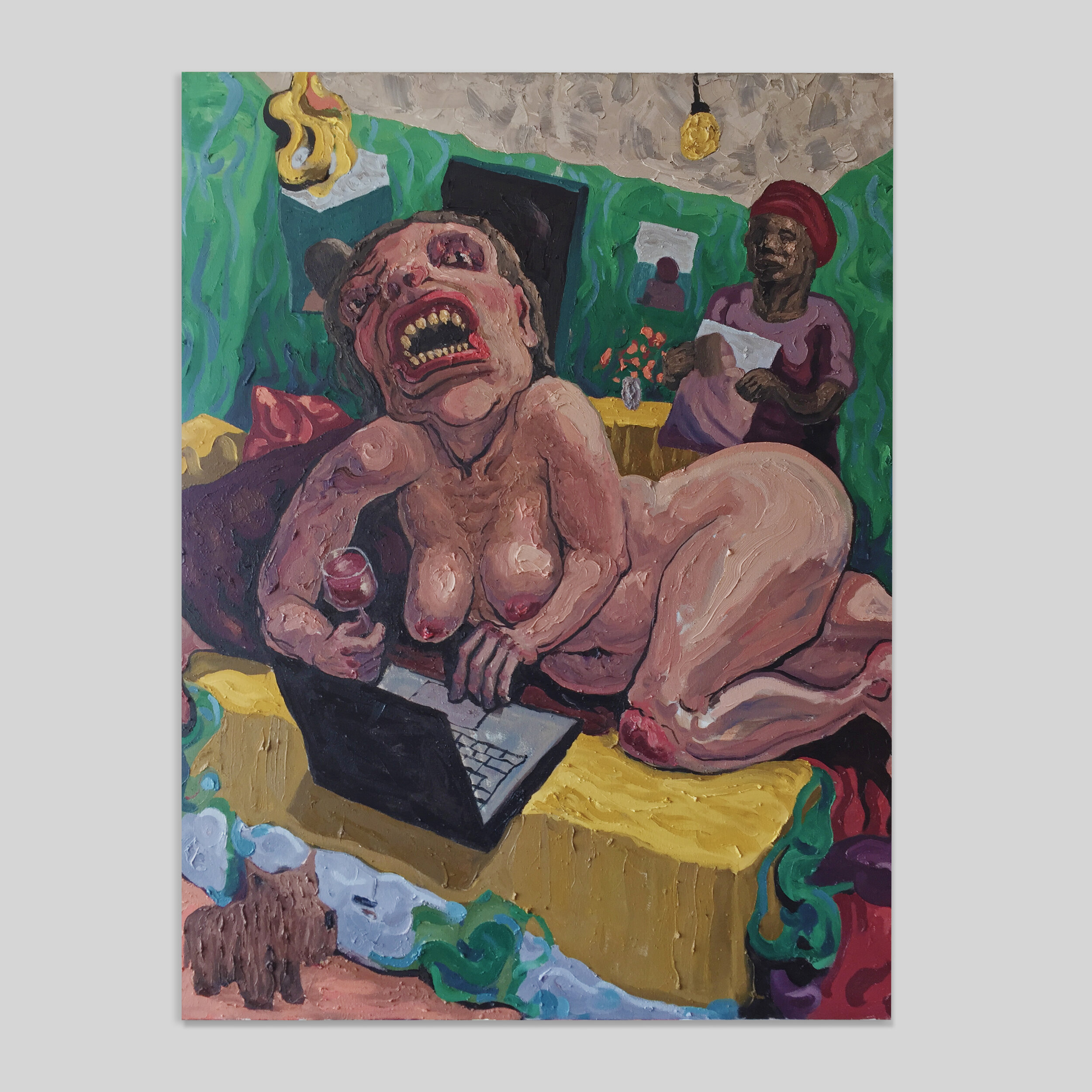Parkhurst 10AM
Oil on canvas
84 x 119 cm
2019
Boet in the backyard
Oil on canvas
2019
123 x 91cm
Hamburgers
Oil on canvas
2019
92 x 61cm
Dinner For One
Oil on canvas
2019
123 x 91cm
Reclining Nude
Oil on canvas
2019
121 x 101cm
Monday Morning
Oil on canvas
2019
123 x 91cm
The Gilded Cage
As a species, we believe ourselves to be at the pinnacle of evolution and unique in our ability to rationalise our environment. With tools we have learned to manipulate the world to our benefit. This ability has created a false sense that we are no longer slaves to our nature. Because we have the ability to rationalize, we believe that our behaviour is logical, but if we look at society and the lives of individuals, we don’t see this being true. Humans were operating in social groups long before our ability to speak, create, use fire or tools and although these abilities helped us to command our environment, they did not fundamentally change our most basic social relations.
Today we sit around a television rather than a fire, we cook on a stove and eat off plates instead of using sticks and leaves, yet we still subconsciously obey social hierarchies, power dynamics and a myriad of related social myths as embodied in money, religion and so on. No one questions a judge, or swears at a policeman, we are intimidated by good-looking people and inherently understand our place in social hierarchies. This is not rational behavior - we do not think about these things before we act. We are slaves to social norms. And as social beings we all strive for status. This drive is often masked and/or hidden by our consumer habits – as in the case of the man who buys a BMW ostensibly for the car’s superior handling, luxury interior or reliability and fails to acknowledge that the brand ‘BMW’ carries with it connotations of its owner belonging to an aspiring upper-middle class. The earliest human artifacts that have been found are thought to have been status symbols, such as the Olduvai hand axe, illustrating that this has been man’s inclination for as long as we have expressed ourselves within social groups. All social mammals organize in hierarchies in which individuals are placed – why is it often the case that we as humans believe we have outgrown this?
Consumption has always been linked to status. Chiefs and noblemen get the lion’s share of food and access to delicacies while common folk have to eat millet and grain. In our modern, capitalist world, luxuries are in principle available to everyone, yet our ability to partake of these is mediated by money and so still has status attached to it. Driving a BMW or Fortuner and shopping for groceries at Woolworths distinctly signal a higher social status than using public transport and doing the monthly shop at Shoprite. One could easily imagine a billionaire ‘dressing down’ to remain inconspicuous on his rounds to a fast food outlet, or an aspiring lower-middle class woman using canvas shopping bags bought at Woolworths to carry her wares from the Pick n Pay.
Consumption today refers to culture as much as it does to commodities as culture becomes increasingly commodified, take for instance social media, Netflix, Spotify, gossip magazines, porn, fashion and so on. Again this behaviour is not rational as anyone who acknowledges they are addicted to their phones will attest.





